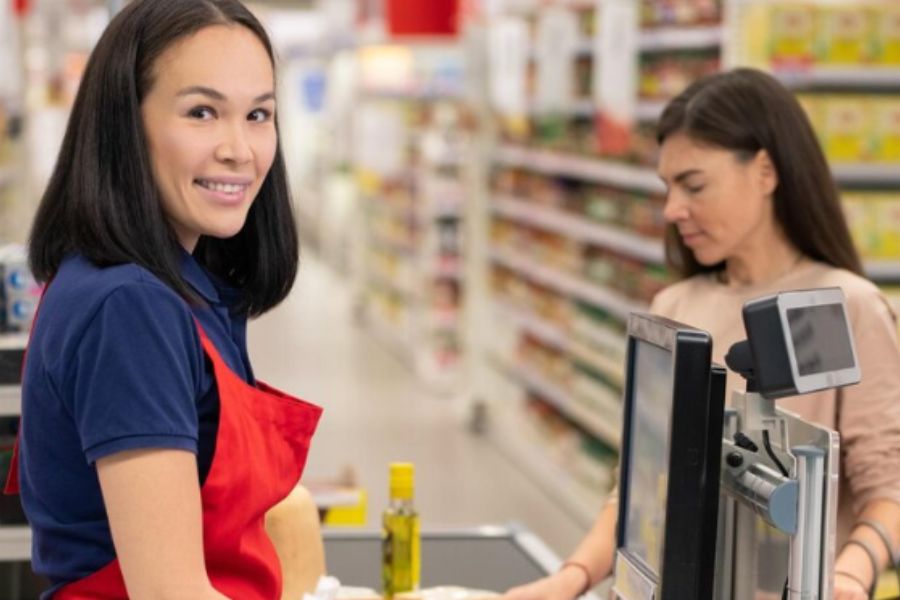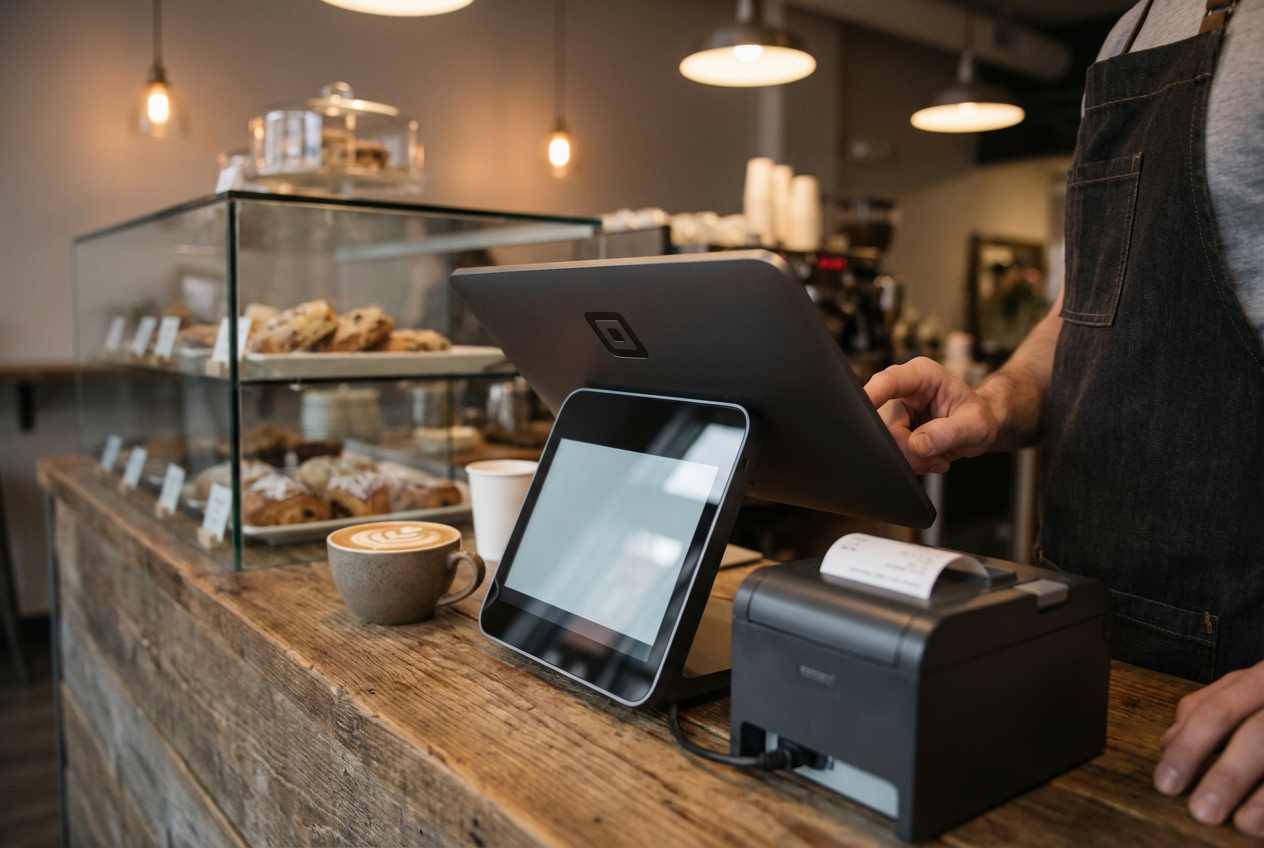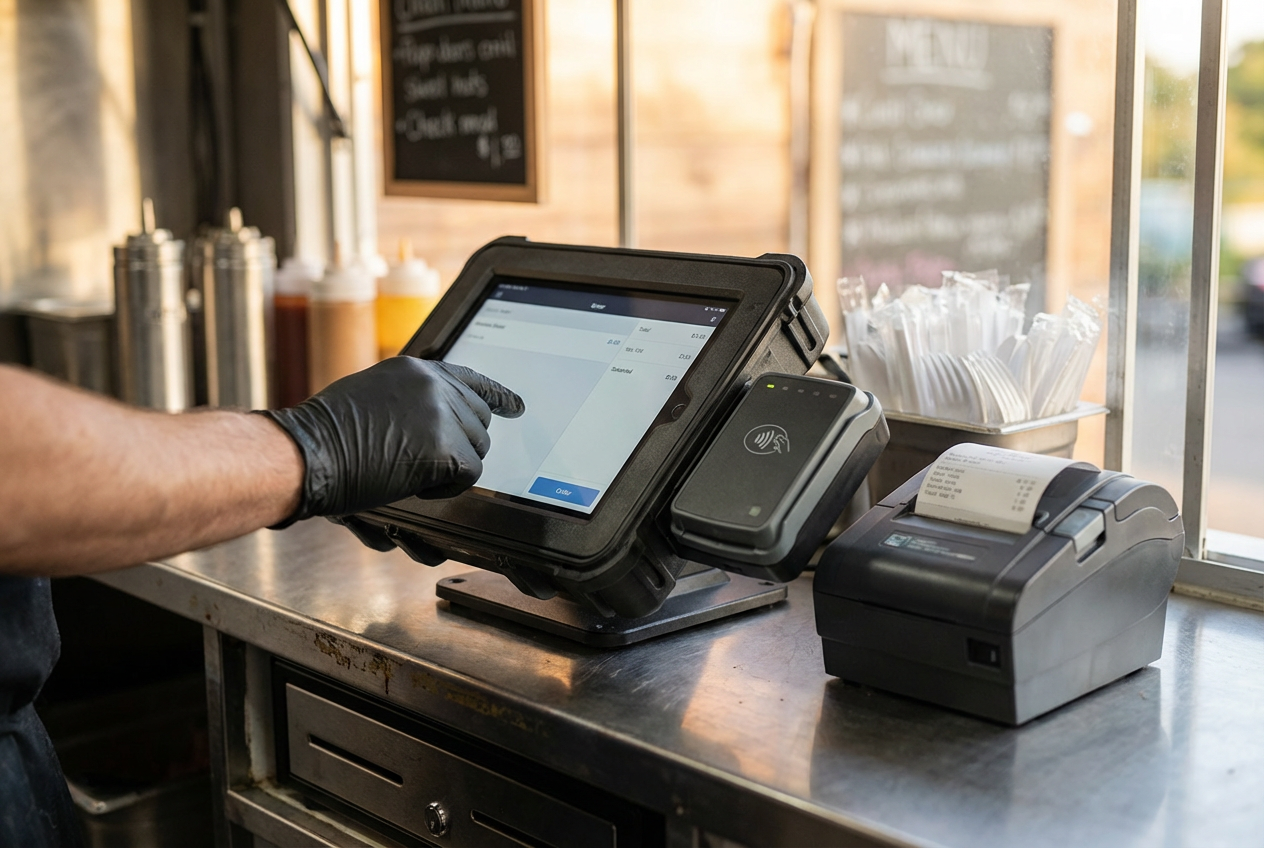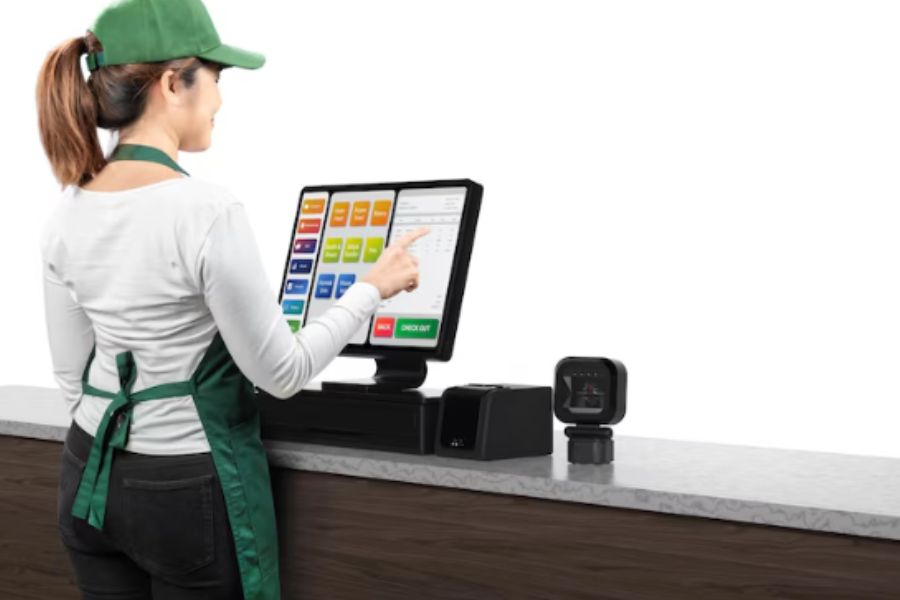As the Indonesian retail sector rapidly evolves, supermarkets must adopt modern POS systems to remain competitive and meet growing customer expectations. A flexible POS solution doesn’t just handle transactions, it enhances operational efficiency, optimizes inventory control, and enriches customer experiences. Especially in a diverse and fast-paced market like Indonesia, where convenience and personalization are key, supermarkets need a POS system that integrates innovation, flexibility, and localized compliance. In this blog, we explore the essential features every supermarket POS system Indonesia must have to deliver a superior and future-ready customer experience.
Highlight:
- A modern POS system in Indonesia must support QRIS payments, real-time inventory, mobile POS, and loyalty programs for enhanced service and efficiency.
- Integration with local language, tax systems, and seamless omnichannel operations is critical for delivering a superior customer experience in a competitive market.
Overview of Supermarket POS System Indonesia Landscape
Indonesia’s retail sector is one of the most dynamic in Southeast Asia. With millions of consumers visiting traditional and modern supermarkets daily, POS systems are now an indispensable part of the infrastructure. From bustling Jakarta to developing urban centers, digital transformation is influencing how supermarkets operate.
Key trends shaping POS system usage in Indonesian supermarkets include:
- Rising preference for contactless and mobile payments
- Increasing demand for real-time inventory control
- Growth in loyalty programs and personalized offers
- Regulatory pressure to meet tax and reporting compliance
- Shift toward cloud-based and integrated solutions
Core Operational Features of Supermarket POS System Indonesia for A Superior Customer Experience
A supermarket POS system Indonesia must go far beyond just processing transactions. It plays a central role in improving operational efficiency, minimizing checkout time, strengthening the customer journey, and guaranteeing compliance with local retail regulations.
Below is a detailed exploration of the key features required for a supermarket POS system Indonesia to deliver a superior customer experience.
- Seamless Checkout
A fast and error-free checkout process is non-negotiable. In the high-volume setting of Indonesian supermarkets, particularly during peak hours and festive periods such as Ramadan or Lebaran, delays at the cash register can lead to customer dissatisfaction and lost sales.
Self-checkout kiosks are gaining popularity in urban locations like Jakarta and Bandung, offering customers more control and faster service.
For example, Alfamart in Indonesia utilizes POS terminals with dual screens one for the cashier and one for the customer, allowing customers to track purchases in real-time and making the process more transparent and efficient.
- Flexible Payment Options
Indonesian consumers use a wide range of payment methods, including:
- Cash
- Debit/credit cards
- QRIS-based mobile payments (such as OVO, GoPay, Dana)
- Buy Now Pay Later (BNPL) options like Kredivo and Akulaku
According to Bank Indonesia, electronic money transactions grew by 36.34% in 2023, driven by e-wallets like OVO, DANA, and GoPay. To cater to diverse customer preferences, a supermarket POS system must accept multiple payment methods cash, credit/debit cards, QR codes, mobile wallets, and even Buy Now Pay Later (BNPL) services.
►►► Optimal solution set for businesses: Multi store POS, Next-gen POS, Inventory Management Software (MSI), Self Service, Automation, Backorders

Offering this flexibility not only enhances convenience but also encourages higher spending and customer loyalty.
- Real-Time Inventory Tracking
Real-time inventory tracking helps supermarkets monitor stock levels, minimize shrinkage, and avoid overstocking or understocking. A robust POS system syncs with backend inventory management to update stock quantities the moment a sale occurs.
For instance, when a product like Indomie noodles runs low in stock, the system can trigger an alert, ensuring timely reordering. This real-time insight is crucial, especially in high-volume stores like Hypermart or Transmart.
- Customer Loyalty Programs
A built-in loyalty program is a key differentiator in Indonesia’s competitive grocery landscape. POS systems can track customer purchases, issue reward points, and deliver personalized promotions.
Take Super Indo’s “Super Card” program as an example. Integrated with their POS system, it offers discounts and reward points that can be redeemed at checkout. According to Nielsen, 84% of Indonesian consumers are more likely to shop at retailers offering loyalty rewards.
- User-Friendly Interface
The high turnover rate of retail staff in supermarkets makes a user-friendly POS interface critical. Touchscreen navigation, intuitive menus, and localized language support (in Bahasa Indonesia) reduce training time and minimize human error.
Modern POS solutions like ConnectPOS offer customizable dashboards tailored to cashier roles, simplifying transactions even during peak hours like Ramadan or holiday weekends.
- Customizable Touchscreen and Hotkeys
With custom hotkeys on touchscreen POS terminals, cashiers can process high-demand items with one touch. For example, in traditional markets like Pasar Swalayan or minimarkets, quick-access buttons for top-selling SKUs (e.g., rice, sugar, instant coffee) accelerate checkout speed.
This customization reduces dependency on barcode scanning for frequently purchased goods and helps manage queues more effectively.
- Advanced Reporting and Analytics
Data-driven decisions are the backbone of successful supermarket chains. Advanced reporting features allow retailers to track sales trends, product performance, and peak shopping times.
A supermarket POS with integrated analytics can provide actionable insights, such as identifying best-selling products by region or calculating profit margins per item. These insights can help chains like Lotte Mart Indonesia fine-tune inventory, pricing, and marketing strategies.
- Integration with Other Systems
Integration with accounting software (such as Xero or QuickBooks), ERP platforms, and e-commerce systems (Magento, Shopify) enables centralized data flow. This is especially useful for supermarket chains operating both online and offline channels.
For example, a POS system integrated with an ERP can update financial ledgers in real-time or sync online promotions with in-store systems, confirming consistent customer experiences across platforms.
- Customer Relationship Management (CRM)
A built-in CRM tool within the POS system captures valuable customer data, purchase history, frequency, and preferences that can be used to personalize promotions or upsell related products.
Retailers like Hero Supermarket can utilize this data to send targeted SMS or email campaigns, offering discounts on frequently purchased items such as dairy or personal care products, thereby boosting repeat purchases.
- Mobile POS
Mobile POS systems empower supermarket staff to assist customers on the shop floor, reducing wait times at fixed counters. During promotions or festive seasons, mobile POS devices can be used to process payments in aisles or at temporary counters.
This flexibility is especially useful in pop-up supermarket setups in malls or for managing high footfall during events like Jakarta Fair.
- Scale Integration
Weighing scale integration is significant in supermarkets selling fresh produce or meats. POS systems connected to digital scales can automatically retrieve weights and calculate prices, eliminating the need for manual input.
This feature not only improves accuracy but also accelerates the transaction process in sections such as fruits, vegetables, or wet markets, where fast-paced sales are particularly significant.
- Automated Purchase Orders and Receiving
POS systems with automated ordering features can generate purchase orders based on inventory thresholds. When certain SKUs reach reorder levels, the system alerts managers or sends orders directly to suppliers.
In a large-scale operation like Giant Ekspres, automation ensures popular items (like bottled water or cooking oil) are always in stock. This decreases administrative workload and minimizes lost sales due to stockouts.
ConnectPOS – Best Supermarket POS System Indonesia
ConnectPOS is a practical choice for a supermarket POS system in Indonesia, serving both independent grocers and larger retail chains with features that support fast-paced operations and multi-branch management. It’s built to align with the local retail environment, offering real-time data syncing, mobile access, and support for Bahasa Indonesia.
For supermarkets that operate both online and offline, ConnectPOS streamlines the process of maintaining consistent inventory and sales data across platforms, including popular local marketplaces such as Tokopedia and Shopee. This helps reduce errors and gives retailers more control over stock movement and customer orders.
Real-time inventory tracking across locations also helps prevent stockouts and reduces excess inventory. Supermarket managers can access sales reports, customer insights, and employee performance data from a single dashboard, making it easier to respond to changing demand.
The system integrates with key supermarket hardware, including barcode scanners, receipt printers, digital scales, and touchscreen displays. It also supports QRIS payments, loyalty programs, and mobile POS, letting staff assist customers directly on the shop floor.
With its local payment support, language options, and seamless integration with both in-store and online channels, ConnectPOS provides the tools Indonesian supermarkets need to enhance service and maintain efficient operations.
FAQs: Supermarket POS System Indonesia
- Why is real-time inventory tracking important in Indonesian supermarkets?
It helps avoid stockouts, reduce overstock, and ensures accurate product availability across multiple store locations in real time.
- What local compliance features should be prioritized in Indonesia?
VAT integration, support for QRIS payments, Bahasa Indonesia interface, and compatibility with local hardware are essential compliance features.
- Are mobile POS solutions viable for small-to-medium supermarkets?
Yes, mobile POS improves checkout flexibility, reduces wait times, and lowers hardware costs, making it ideal for growing businesses.
Conclusion
In sum, the must-have features of a supermarket POS system Indonesia range from integration with scales and mobile devices to support for QRIS payments and real-time analytics. A well-equipped POS system enables supermarkets to stay competitive, compliant, and customer-focused.
ConnectPOS offers everything supermarkets in Indonesia need to thrive in this dynamic environment. With local payment integrations, Bahasa Indonesia support, mobile POS capabilities, loyalty programs, and real-time data insights, ConnectPOS empowers retailers to serve customers better and run smarter businesses. Contact us today to discover how our solution can transform your business into a customer-focused, data-driven, and future-ready supermarket.
►►► Optimal solution set for businesses: Shopify POS, Magento POS, BigCommerce POS, WooCommerce POS, NetSuite POS, E-Commerce POS




